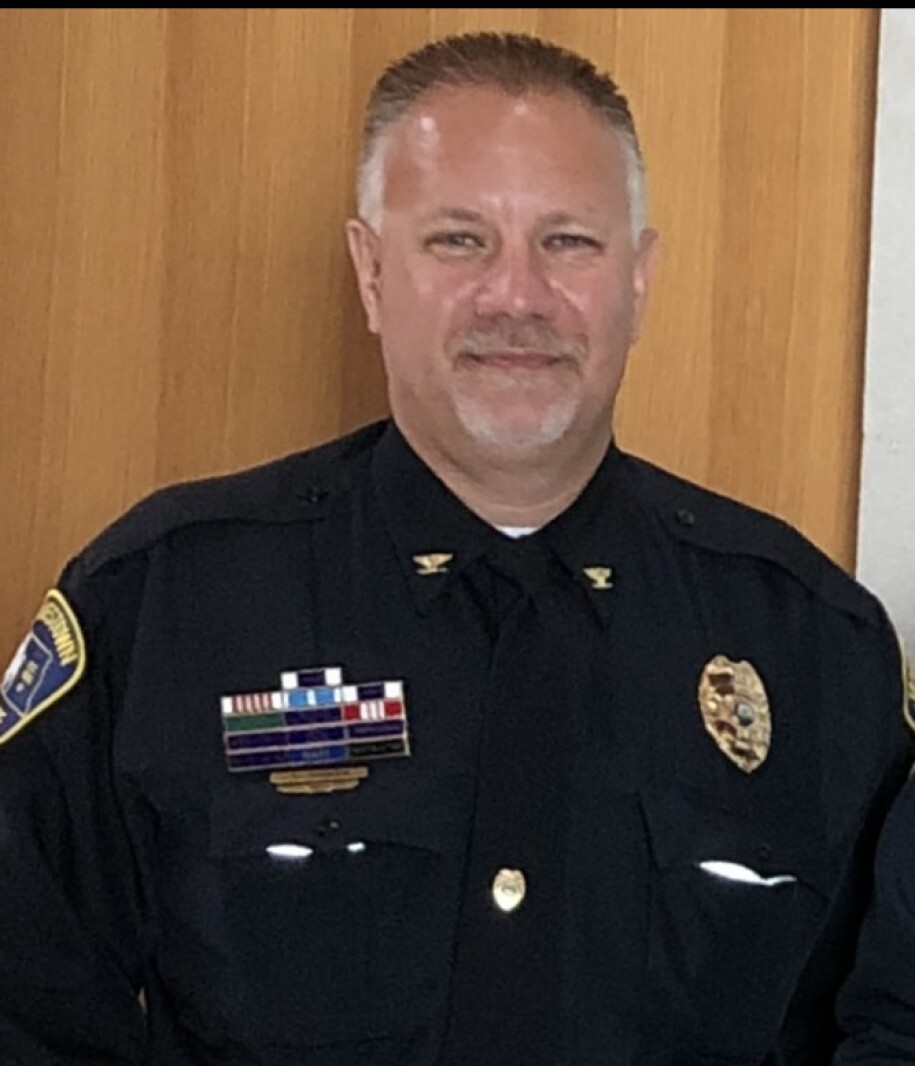North Dakota
Port: The NDGOP’s new leaders promote attacks on elected Republicans

MINOT, N.D. — Since she was elected chair of the North Dakota Republican Party,
a vote that was as narrow as it was controversial,
Sandi Sanford, an advocate of book bans who
considers the “culture warrior” appellation to be a compliment,
has been paying lip service to the concept of unity.
She’s claimed her platform was rooted, at least in part, in
“uniting the party,”
and she has made overtures in that direction. Shortly after her election, the party sent out an email extolling the work of the party leaders who were ousted by Sanford and her fellow culture war activists, a clear attempt at trying to paper over sharp divides among the state’s Republicans.
But Sanford’s efforts have come off as perfunctory — her overtures toward unity desultory — to the faction of the party that opposed her election as chair.
“She won by one vote,” one NDGOP leader who was defeated in the recent party election told me, “but she’s carrying on as if she and her supporters have a mandate to define Republicanism for everyone else.”
“I was brutalized and insulted by Sanford’s supporters on social media,” another former executive committee member told me, “so pardon me if I’m not appeased by some email touting my service to the party.”
I’ve been attempting to schedule an interview with Sanford, and while she’s claimed to be amenable, we haven’t yet been able to make it happen.
The party has already
refunded some big-dollar contributions
to disillusioned donors after Sanford’s election, and even as Sanford and her supporters sing a song of togetherness, they seem to see
other Republicans, and not Democrats,
as their primary opponents.
A case in point is a recent analysis of votes in the state House of Representatives during the 2023 session that (try not to laugh) sought to paint a majority of House members as a bunch of liberals and moderates.
The analysis was
stupid and facile,
measuring only how often Republicans and Democrats in the House chamber voted together without any consideration for the efficacy of the bills being voted on.
As if a Republican and a Democrat voting together on a bill were inherently bad, with no need to consider what they were voting on.
But let’s be honest with ourselves. The intent wasn’t a useful measure of legislative performance but propaganda in service of the idea, which Sanford and her ilk campaigned on, that many elected Republicans in our state might as well be Democrats.
A ridiculous notion. But then, we live in ridiculous times.
I bring up that analysis because it
was promoted by a Minnesota-based group
that calls itself the Center of the American Experiment. Per her LinkedIn profile, the executive director of the North Dakota chapter of this group is Jennifer Benson, a former member of the Fargo School Board and
proponent of student litter box conspiracy theories
who was elected, alongside Sanford, as vice chair of the NDGOP.
Benson also promoted on Twitter this trumped-up analysis attacking the voting record of most of the Republican majority in the state House.
Sanford claims she wants unity among Republicans.
Meanwhile, many elected Republicans have more to fear from attacks launched by members of their own party’s leadership than they do Democrats.
For those hoping to see continued victories for Republicans at North Dakota’s ballot box, this situation is not a recipe for success.

North Dakota
A chance to bring term limits back to life – The Boston Globe

Of course, there is a surefire way to guarantee more turnover in Congress: term limits. Imposing a hard cap on how long senators and representatives can retain their seats wouldn’t prevent scoundrels, zealots, and incompetents from getting elected. It would keep them from becoming entrenched in power. It would make congressional elections more competitive, more responsive, and more meaningful. It would encourage more good and talented people to run for office. And it would decrease the influence of lobbyists, whose clout depends on ties to long-time incumbents.
There is little about politics today on which Democratic and Republican voters agree, but the desirability of congressional term limits has long been an exception.
The Pew Research Center last fall measured public support for a number of proposed reforms, including automatic voter registration, expanding the Supreme Court, and requiring a photo ID to vote. By far the most popular proposal was a limit on the number of terms members of Congress can serve. An overwhelming 87 percent of respondents favored the idea. Similarly, researchers at the University of Maryland’s School of Public Policy, who have studied public attitudes on this issue since 2017, report that very large majorities of Republicans, Democrats, and independents consistently back term limits.
If congressional term limits command such widespread bipartisan regard, why don’t they exist?
Actually, they used to. A wave of citizen activism in the early 1990s led 23 states, comprising more than 40 percent of all the seats in Congress, to enact laws limiting the terms of senators and representatives. But in 1995, a sharply divided Supreme Court ruled in US Term Limits v. Thornton that neither the states nor Congress may add to the conditions for serving in Congress. In a 5-4 decision, the court ruled that inasmuch as the Constitution did not set a maximum number of terms for senators and representatives, states cannot do so either.
The dissent, written by Justice Clarence Thomas, was strong.
“Nothing in the Constitution deprives the people of each State of the power to prescribe eligibility requirements for the candidates who seek to represent them in Congress,” he observed. “The Constitution is simply silent on this question. And where the Constitution is silent, it raises no bar to action by the States or the people.”
At the time, the court’s ruling had the effect of nullifying congressional term limits in all the states that had adopted them. But nearly 30 years later, might the issue get a second look?
Maybe.
On June 11, North Dakota voters handily approved an amendment to the state constitution imposing an age limit on candidates for Congress. The new measure disqualifies anyone from running for the House or Senate if they would turn 81 before the term ends. Under the 1995 decision, the North Dakota law is unconstitutional, since it imposes an eligibility requirement to serve in Congress that isn’t in the Constitution. So it is widely assumed that the law will be challenged in federal court. Federal judges are bound by Supreme Court precedent, so the law will presumably be struck down by the district court, and that decision will be affirmed by the court of appeals.
But that would set up an appeal to the Supreme Court, providing an opportunity to revisit the issue — and perhaps overturn US Term Limits v. Thornton. Of the justices who were on the court in 1995, the only one still serving, as it happens, is Thomas. Another of the current justices, Neil Gorsuch, co-authored a 1991 law review article defending the constitutionality of term limits.
It might seem odd that a challenge to North Dakota’s congressional age limits law could conceivably open the door to undoing a Supreme Court precedent dealing with term limits. But the underlying issue is the same in both cases: whether the people in each state have the right to set the rules for gaining access to their ballot and representing them in Congress.
There is good reason for the public’s unflagging support for limiting congressional terms. Because the advantages of incumbency are so powerful, it has become incredibly difficult to dislodge a sitting member of Congress. US presidents, most governors, and mayors of many of the country’s largest cities are term-limited. Most Americans, across the political spectrum, have steadfastly believed senators and representatives should be too. Nearly 30 years ago the Supreme Court took the power to make that decision away from the people. Soon it may have a chance to restore it.
Jeff Jacoby can be reached at jeff.jacoby@globe.com. Follow him on X @jeff_jacoby. To subscribe to Arguable, his weekly newsletter, visit globe.com/arguable.
North Dakota
Operation Dry Water 2024 focuses on Fourth of July week

BISMARCK, N.D. (KFYR) – North Dakota Game and Fish Department game wardens will once again participate in a national campaign called Operation Dry Water.
“Operation Dry Water is a national campaign focusing on the awareness and enforcement of boating under the influence, both alcohol and drug use,” said Jackie Lundstrom, NDGF game warden supervisor.
This year’s campaign is focused on the Fourth of July week, July 4-6.
“That time frame has historically been picked because it is a national holiday, and it’s a time frame when just about everybody gets together for some sort of family gathering or friends and family outing and watching fireworks,” said Lundstrom.
There are many partners who participate in Operation Dry Water on a local and national level.
“Across the country, all agencies involved with any type of water enforcement. That could be a state agency, it could be sheriff’s departments, local police departments. We have states and territories all over the country that are involved with this project. And it’s also in correlation with the U.S. Coast Guard as well,” said Lundstrom.
What can boaters expect when stopped by game wardens or other participating agencies during Operation Dry Water?
“If you are stopped, whether it was for an initial violation or a safety check, our officers will go through those items that are required, and then they’ll also discuss whether or not there’s a sober operator on board for the day,” said Lundstrom.
The Fourth of July is a holiday when family and friends typically gather and have a great time on our state’s lakes and rivers, but at the end of the day, everyone has the same end goal.
“Our ultimate goal when we’re outdoors and out on the water, especially this holiday weekend, we want to make sure that everyone comes home safe and has a good time on the water,” said Lundstrom.
Most of the fatal boating accidents in North Dakota are alcohol-related.
Copyright 2024 KFYR. All rights reserved.
North Dakota
Takeaways: How Trump's possible VP pick shifted on LGBTQ+ issues as his presidential bid neared

North Dakota Republican Gov. Doug Burgum is little-known on the national stage but is now a top choice to be former President Donald Trump’ s vice presidential running mate.
The wealthy software entrepreneur has led North Dakota like a CEO. He’s championed business-oriented items such as income tax cuts and tech upgrades for state government, from cybersecurity to state websites. He has not been outspoken on social issues, even as the state’s Republican-led Legislature sent him a flurry of anti-LGBTQ+ bills last year. But after vetoing some of the bills in 2021 and 2023, he later signed most of them — around the same time he was preparing a 2024 presidential bid that fizzled within months.
Here are some takeaways on Burgum and his actions:
From small-town roots, Burgum became a wealthy executive
Burgum, 67, grew up in a tiny North Dakota town. After college, he led Great Plains Software, which was acquired by Microsoft in 2001 for $1.1 billion. Burgum stayed on as a vice president with Microsoft until 2007. He went on to lead other companies in real estate development and venture capital.
Gifts from individuals keep MPR News accessible to all – free of paywalls and barriers.
Burgum was largely known as a software executive and businessman before his upset campaign for governor in 2016 when he beat the state’s longtime attorney general in the GOP primary. He ran on “reinventing” government as the state grappled with a $1 billion revenue shortfall.
As governor, his focus was on economic, not social issues
Burgum campaigned in 2016 as a business leader and has governed with the same approach. He’s talked about “treating taxpayers like customers.” He brought some Microsoft veterans and other private-sector people into state government.
He’s pushed income tax cuts, cybersecurity enhancements, state website upgrades, cuts to state regulations and changes to higher education governance and animal agriculture laws. The planned Theodore Roosevelt Presidential Library is one of his biggest efforts.
Burgum can talk at length about carbon capture, energy policy and other topics of interest to him. He frequently boasts of North Dakota’s underground “geologic jackpot” for carbon dioxide storage, and touts an approach of “innovation over regulation.”
People who have worked with him in the governor’s office say he’s extremely inquisitive and works long hours.
Burgum’s positions on LGBTQ+ issues changed
Democratic and Republican lawmakers who have worked with Burgum say it was disappointing to see him sign a sheaf of anti-LGBTQ+ bills in 2023, and that he might have been eyeing the national stage as he did so. Burgum launched a bid for president in June 2023, about a month after the legislative session ended.
In 2021, Burgum vetoed a bill banning transgender girls from public schools’ girls sports. In early 2023, he vetoed a bill he said would make teachers into “pronoun police.”
But later in the 2023 session, as he prepared to run for president, he signed the slew of bills restricting transgender people, including a ban on gender-affirming medical treatments for kids and two sports bans similar to the bill he vetoed in 2021.
He also signed a book ban bill but vetoed a further-reaching one. Opponents said the bills went after LGBTQ+ literature.
Burgum also signed a bill that revised North Dakota’s abortion laws after the U.S. Supreme Court struck down Roe v. Wade. The state’s abortion ban is one of the strictest in the U.S. Burgum has not been outspoken on LGBTQ+ issues or abortion.
Burgum ended his presidential campaign in December 2023, having failed to gain traction. The next month, he said he wouldn’t seek a third term as governor.
-

 News1 week ago
News1 week agoTracking a Single Day at the National Domestic Violence Hotline
-

 Fitness1 week ago
Fitness1 week agoWhat's the Least Amount of Exercise I Can Get Away With?
-

 News1 week ago
News1 week agoSupreme Court upholds law barring domestic abusers from owning guns in major Second Amendment ruling | CNN Politics
-

 World6 days ago
World6 days agoIsrael accepts bilateral meeting with EU, but with conditions
-

 Politics1 week ago
Politics1 week agoTrump classified docs judge to weigh alleged 'unlawful' appointment of Special Counsel Jack Smith
-

 Politics1 week ago
Politics1 week agoSupreme Court upholds federal gun ban for those under domestic violence restraining orders
-

 World1 week ago
World1 week agoNew Caledonia independence activists sent to France for detention
-

 World1 week ago
World1 week agoIs Israel’s Smotrich fulfilling his dream of annexing the West Bank?




















